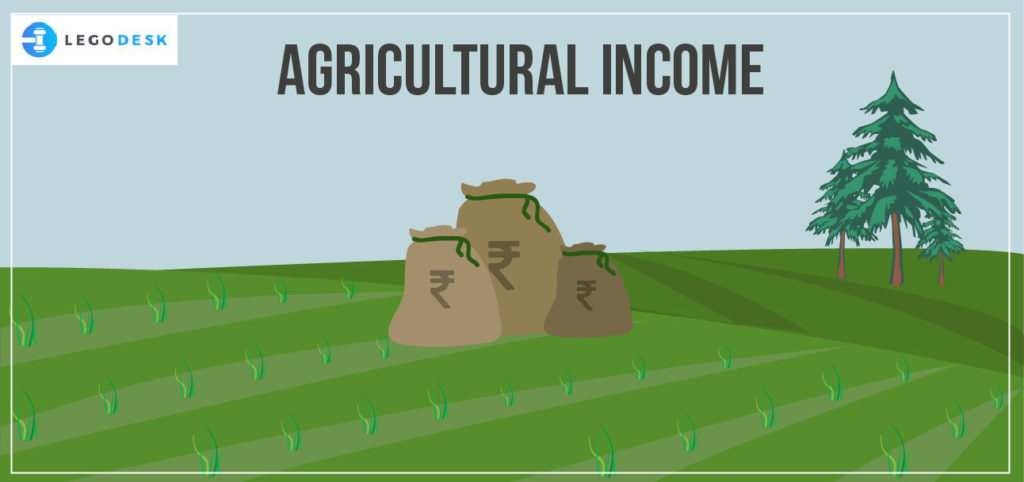What is Agricultural Income?

Introduction To Agricultural Income
In India, agricultural income refers to financial gain attained or revenue derived from sources that embrace farming land, buildings on or known with agricultural land and industrial turn out from farming land. Agricultural income is outlined under section 2(1A) of the Income Tax Act, 1961. In line with this Section, agricultural income usually means:
(a) Any rent or revenue derived from land that is settled in India and is employed for agricultural functions.
(b) Any financial gain derived from such land by agriculture operations together with the process of agricultural turn out therefore to render it acceptable the market or sale of such turnout.
(c) Any financial gain owing to a farmhouse subject to satisfaction of bound conditions laid out in this regard in section 2(1A).
(d) Any financial gain derived from saplings or seedlings fully grown during a nursery shall be deemed to be agricultural income.
The following are a few examples of agricultural income:
- Income derived from the sale of replanted trees.
- Income derived from the sale of seeds.
- Rent received for agricultural land.
- Income derived from growing flowers and creepers.
- Profits received from a partner from a firm engaged in agricultural production or activities.
- Interest received on capital that a partner from a firm engaged in agricultural operations.
Section 10(1) of the Income Tax Act, 1961
According to Section 10(1) of the Income Tax Act, 1961, agricultural income is exempted from taxation. The central government cannot levy a tax on the agricultural income received. However, agricultural income is taken into account for rate functions whereas assessing the revenue for Income Tax liability if the conditions mentioned below are satisfied:-
When the Net agricultural financial gain is larger than Rs. 5,000/- for the previous year.
When the Total financial gain, excluding internet agricultural financial gain, surpasses the fundamental exemption limit (Rs. 2,50,000 for people below sixty years and Rs. 3,00,000 for people higher than sixty years of age)
If these two conditions are met, tax liability shall be computed in the following manner:
Step 1: Let us regard agricultural income as X and other income as Y Tax computed on X+Y is B1
Step 2: Let us regard basic exemption slab for income tax payment as A Tax computed on A+X is B2
Step 3: The actual income tax liability shall be B1-B2
Read Also: Advance Tax Payment
Section 54B of the Income Tax Act, 1961
Section 54B of the Income Tax Act, 1961, provides relief to taxpayers United Nations agency sell their agricultural land and uses the sale take to amass another agricultural land. to assert tax deduction below Section 54B of the Taxation Act, the subsequent conditions can need to be satisfied:
This profit will solely be claimed by a person or a HUF.
The agricultural land ought to be employed by the individual or his or her parents for agricultural purposes for a minimum of 2 years preceding the date on that the exchange of land occurred. Just in case of HUF, the land ought to be employed by any member of HUF.
The remunerator should buy another agricultural land within 2 years from the date of selling the old piece of land. Just in case it is a happening of mandatory acquisition, the amount of effort new agricultural land is assessed from the date of receipt of compensation. It should be noted that under Section 10(37), capital gain shall not be guilty to tax if the agricultural land is mandatorily non-inheritable under any law, and also the consideration of which is approved by the central government or banking regulator and received on or once 01-04-2004.
Tax on sale of agricultural land
Before 1970, profit on the sale or transfer of all agricultural land was thought-about rent or revenue derived from the land. Such profit was, therefore, untaxed as agricultural financial gain. There have been many favourable judgments of various High Courts on the problem. However, via a retrospective change that took impact from April 1st, 1970, land qualifies to be associate agricultural land if the prescribed conditions square measure happy. An agricultural land doesn’t come under the definition of a capital asset and hence, there is no question of a capital gain on the sale of such land.
Any other land not forming a part of the above definition of is a capital quality and sale of the same shall attract tax on capital gains subject to Section 54B.
Conclusion
Agricultural income is exempted from tax in India. This advantage is purportedly being abused by rich landlords with substantial earnings to sidestep charges.
The exception for agrarian salaries is profiting medium and substantial farmers and farming organizations, which was not the proposed result. The salaries of the little and minor farmers are far beneath the base edge limit of Rs 2.5 lakh of individual pay tax assessment. Hence, there is a massive demarcation to worry about.
Try our Debt Resolution solutions today Request a Demo